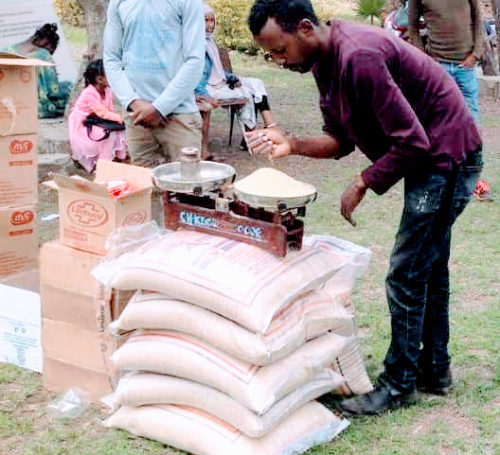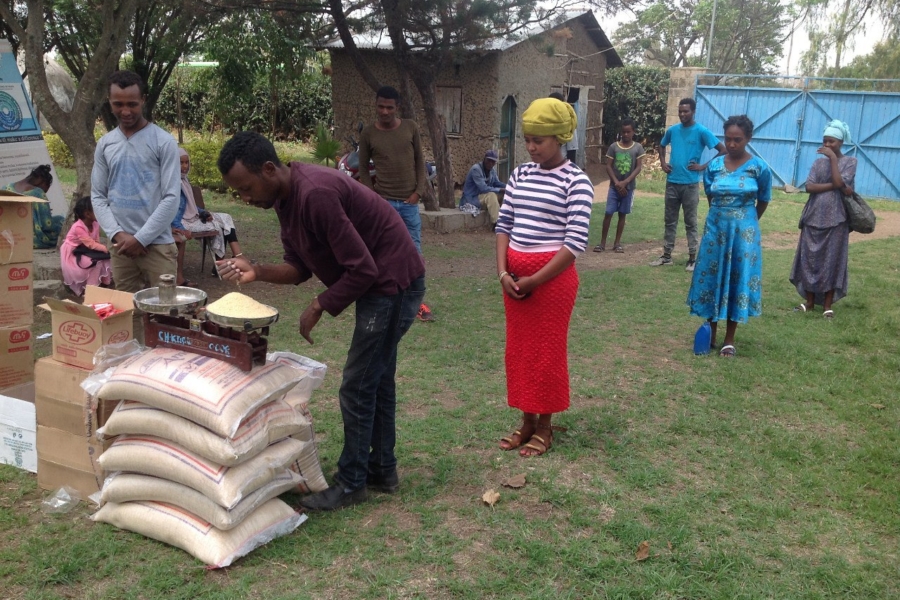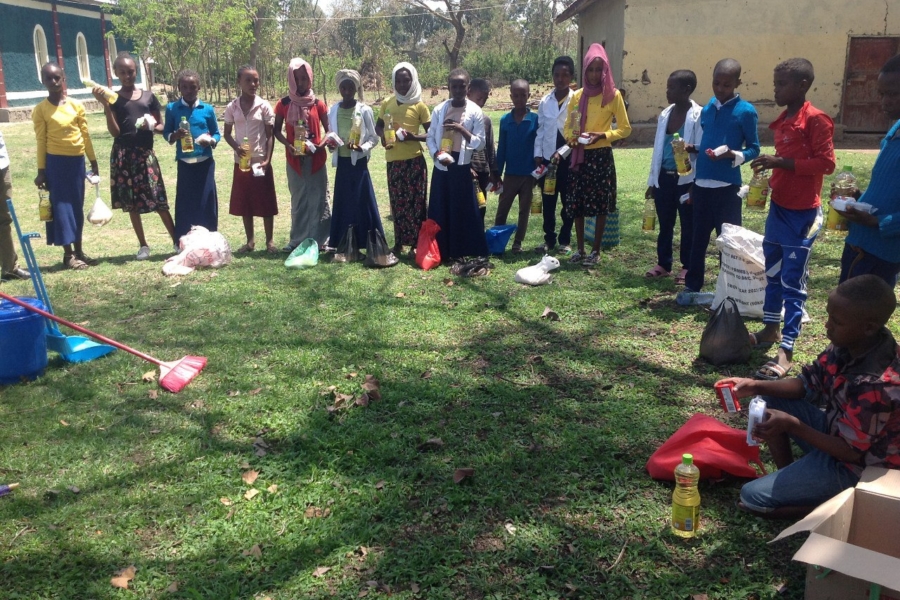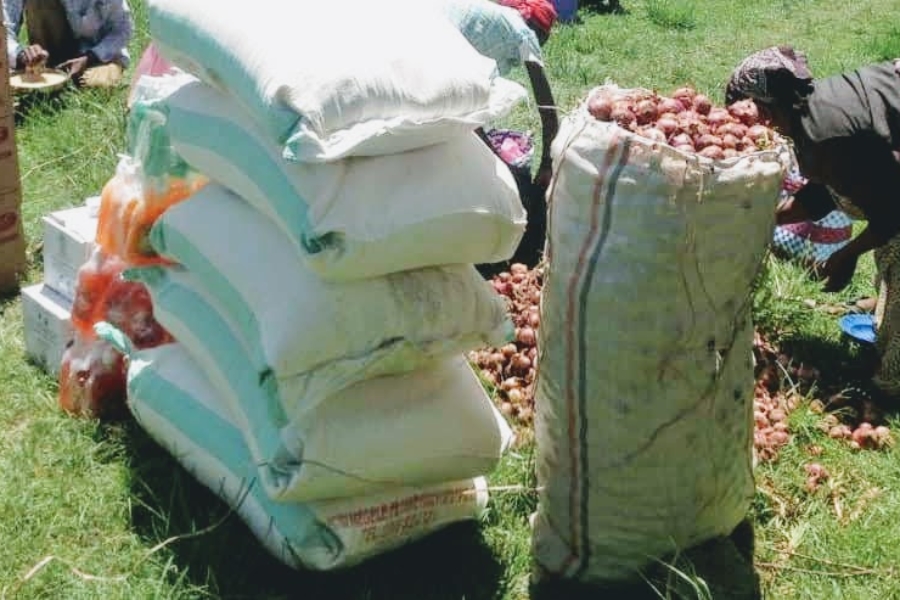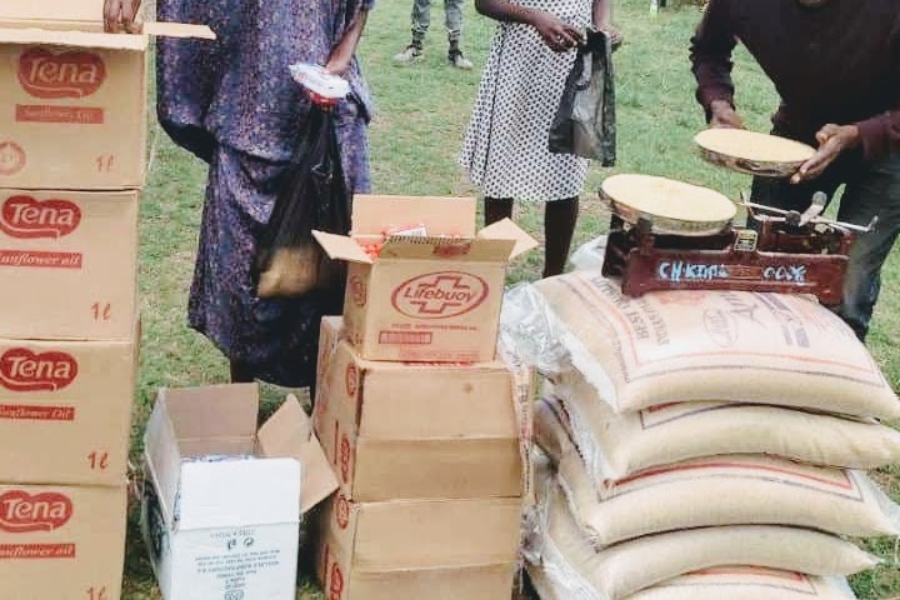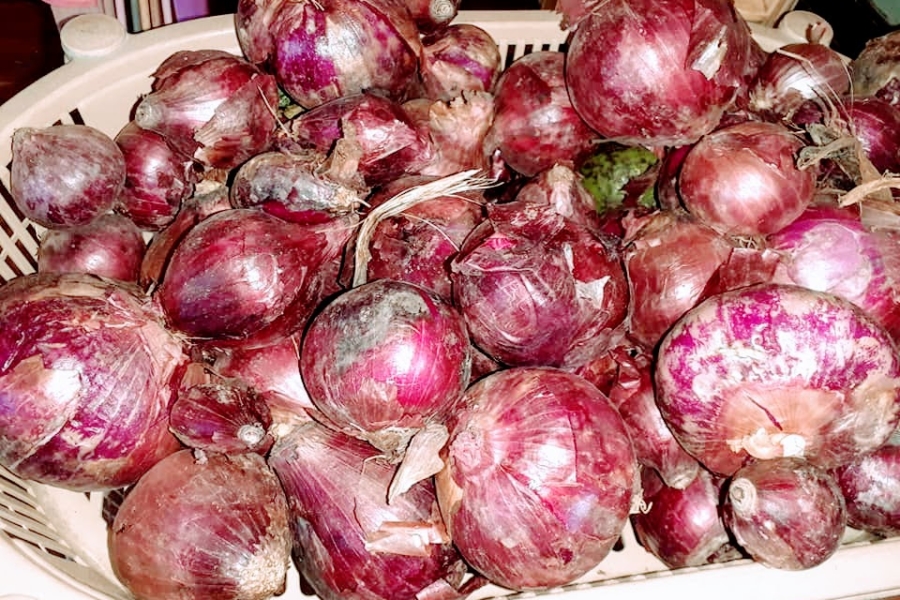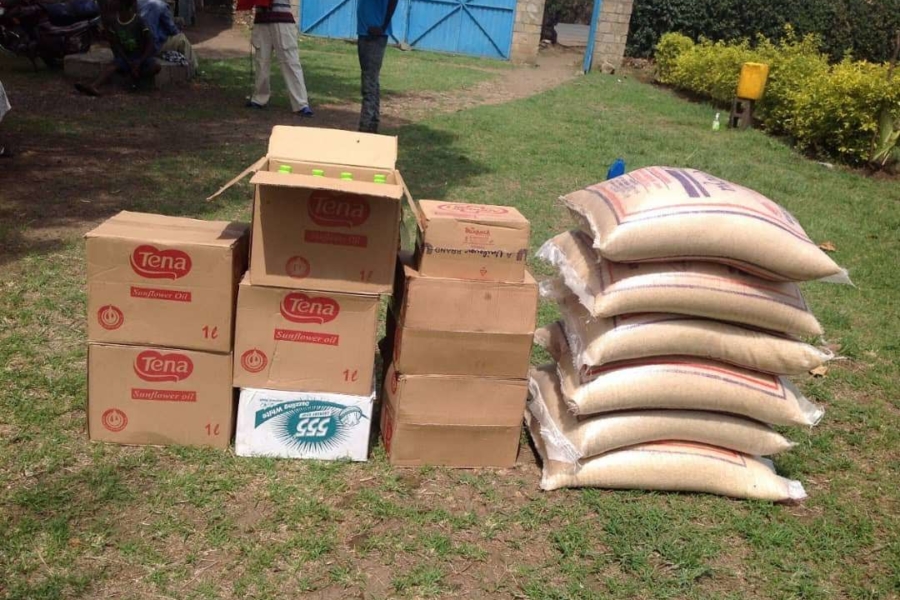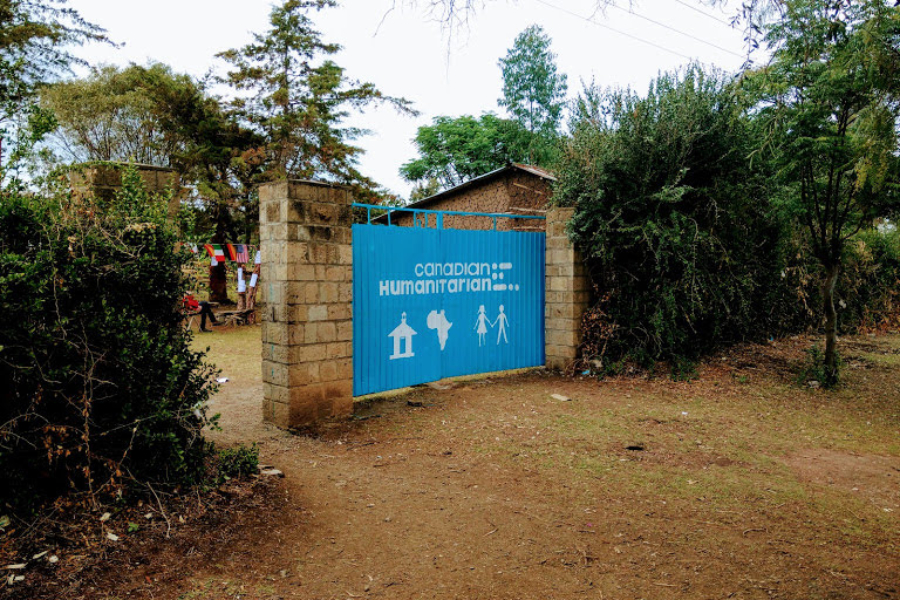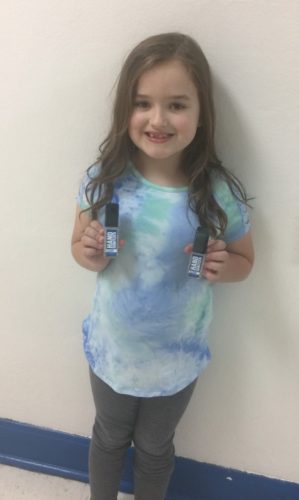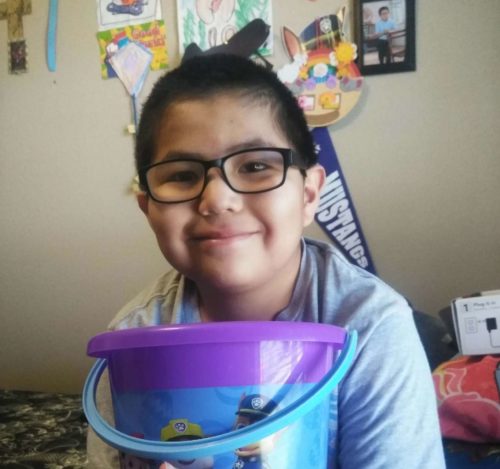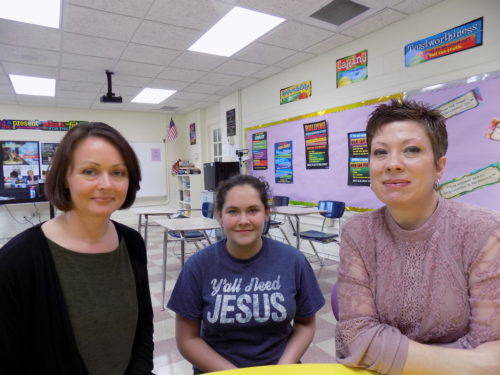When first publishing this story a few weeks ago, Guatemala had the lowest number of cases of COVID-19 of all Central American countries, yet there are still many challenges that families are facing.
Today we hear from our Director of International Programs, Luis Bourdet, about the current situation in Guatemala.
Today we hear from our Director of International Programs, Luis Bourdet, about the current situation in Guatemala and how Children Incorporated is responding.
COVID-19 impact on Guatemala
“Some of our affiliations in Guatemala are supporting the children regularly, but with many difficulties as they have a curfew in place in the country: no one is to move from 6 pm to 4 am every day. Many people complain about the lack of social distancing, especially in the poor, overcrowded areas of the country,” said Luis.
Yet despite these issues, there have only been around 1000 cases in Guatemala reported. Probably because of the government implementation of the mandate, restrictions to [going] outside without a mask, the lockdown of the country, and of course, social distancing.”
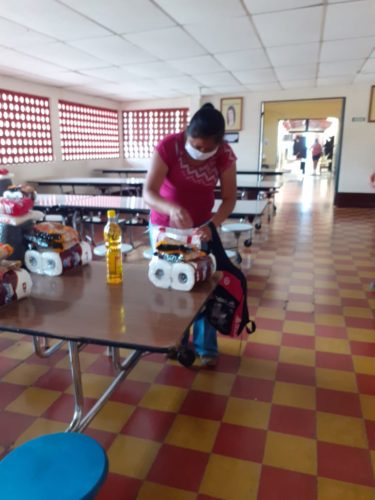
Food and hygiene product bags are packed up at our affiliated project, Sagrada Familia, for families to take home.
“No flights are allowed internationally, and no traveling within states. The president has taken this epidemic very seriously as he is a medical doctor and has worked very hard on making the right decisions so far, as per the information I have received from our coordinators,” said Luis.
“Currently, schools are still suspended, and most businesses at this time. Only essential work goes on and under restrictions. Since traffic is always a problem in the country, you can imagine [that] getting home before the curfew hour has been a challenge. The curfew will stay until further notice, although the president allowed some shopping.”
“The government of Guatemala had a [plan to provide] one-time cash support to families [in the amount] of Q1,000 (equivalent to US $130 dollars), but only about Q200 million was available originally, [which supported] only about 200,000 families of the 17 million people living in the country,” said Luis.
“Of course, the amount has grown since, but the support to families is practically non-existent. Almost half of the population in Guatemala were low-income earners, and the percentage of people receiving aid in this group was minimal. No one having an income above the minimum wage (minimum wage is about US $220 a month) would receive this incentive. Only people making less than that would qualify, including street vendors and non-income filers, nannies, and house service people earning much less.”
Our Response
We are grateful for the support that our sponsors and donors are providing to families in Guatemala at this time. Thanks to donations made to our COVID-19 Response Fund and to our sponsored children, we have provided funds to our affiliated projects to purchase food, hygiene items, and other necessities for children while they are out of school for the duration of the outbreak.
About Guatemala
Located just southeast of Mexico, Guatemala is the most populous country in Central America. Its spectacular mountains boast a wealth of natural resources and stunning biodiversity. For centuries, this land served as the core territory of the Mayan civilization. Following two centuries of Spanish colonization, Guatemala gained its independence in the early nineteenth century, only to endure another 150 years of political instability and civil unrest. Additionally, this area is prone to devastating natural disasters, such as earthquakes, volcanic eruptions, and hurricanes, which cause mudslides and flooding. Despite recent economic growth and successful democratic elections, Guatemala still struggles with widespread poverty, illiteracy, crime, and high rates of unemployment and underemployment.
Thanks to donations made to our COVID-19 Response Fund and to our sponsored children, we can send funds to our affiliated projects to provide food, hygiene items, and other necessities for children while they are out of school for the duration of the outbreak.
About our affiliated projects
Juan Apostol School
Guatemala City, Guatemala
Founded in 1964, the Juan Apostol School strives to provide the deserving children of Guatemala City with a well-rounded education — the key to breaking the cycle of poverty. In this way, students here have the opportunity to rise above the difficult socioeconomic circumstances into which they were born.
Zacapa School
Zacapa, Guatemala
In 1952, upon discovering that many children were unable to receive an education due to the limited number of schools in this rural area, a group of American Lutheran missionaries established a boarding school to remedy the problem. Although not many children board at Zacapa School today, the school continues its mission of providing impoverished children with a sound education and moral guidance.
Santa Isabel Ana Seton
Guatemala City, Guatemala
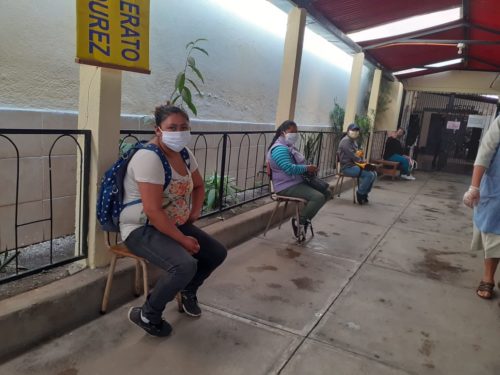
Families wait to pick up items while also practicing social distancing in Guatemala.
Named for a North American nun who was canonized in 1975, the Santa Isabel Ana Seton Welfare Center serves as a beacon of hope in the city’s poorest district. Here, the Sisters of San Vincente de Paul and Santa Luisa de Marillac tend to the needs of local impoverished families. Additionally, since Guatemala’s public education system suffers from overcrowding, numerous teacher strikes, and a general lack of school supplies, the Sisters also provide education through the affiliated Escuela Santa Maria private school. Together, the school and project strive to provide these deserving children with basic needs and sound education.
Sagrada Familia
Antigua, Guatemala
Sagrada Familia’s mission is to provide Antigua’s impoverished children with the educational, nutritional, and medical support they so desperately need. With the well-rounded education they receive, students here are given the opportunity to rise above the problematic socioeconomic circumstances from which they come.
Casa Central
Guatemala City, Guatemala
In one of Guatemala City’s slum neighborhoods, the Casa Central School was founded in the mid-nineteenth century and run by the gracious nuns of the Sisters of Charity. Casa Central has a long and honorable history of ministering to the children here, offering them a place of refuge from the instability and crime that pervade this neighborhood.
Bethel-Quetzaltenango Primary School
Quetzaltenango, Guatemala
Established by the local Bethel Church, the Bethel-Quetzaltenango Primary School’s mission is to assist Quetzaltenango’s impoverished children. Here, these deserving boys and girls receive a well-rounded education.
Tecpan School
Tecpan, Guatemala
Run by nuns of the Hijas de Caridad (Daughters of Charity) Order, the Tecpan School strives to aid the impoverished children of this region. The school offers children a solid education from caring administrators and staff.
***
HOW DO I SPONSOR A CHILD IN GUATEMALA?
You can sponsor a child in Guatemala in one of three ways: call our office at 1-800-538-5381 and speak with one of our staff members; email us at sponsorship@children-inc.org; or go online to our sponsorship portal, create an account, and search for a child in Guatemala that is available for sponsorship.
SPONSOR A CHILD
